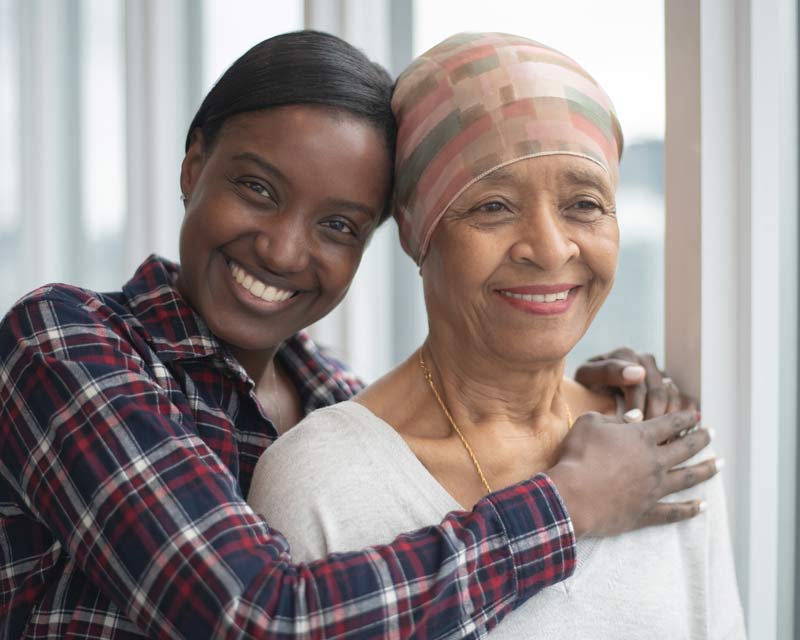
Multidisciplinary Clinic Aims to Reduce Fall-Related Injuries and Deaths
 CARE Clinic focused on personalized treatments for older adults with cancer
CARE Clinic focused on personalized treatments for older adults with cancerCancer care is complex, especially for older adults already facing age-related health concerns.
To address their needs, The Ohio State University Wexner Medical Center created the Cancer and Aging Resiliency (CARE) Clinic.
Part of The Ohio State University Comprehensive Cancer Center – Arthur G. James Cancer Hospital and Richard J. Solove Research Institute, the CARE Clinic is one of 615 programs nationwide with the Institute for Healthcare Improvement (IHI) “Age-Friendly Health System” designation. Only 11 cancer centers have this recognition.
An initiative of The John A. Hartford Foundation and the IHI, Age-Friendly Health Systems have shown a commitment to care excellence and routinely meet specific evidence-based metrics.
Ashley Rosko, MD, hematologist and medical director of the Oncogeriatric Program at the Ohio State Comprehensive Cancer Center – James Cancer Hospital and Solove Research Institute, says improving life for older adults is a pillar of geriatric oncology and the CARE Clinic. With three clinical services, the CARE Clinic offers services to patients across all cancer diagnoses, and specific support for people with breast cancer and those in need of palliative care.
“We’re dedicated to the growing care needs of older adults with cancer,” Rosko says. “We work to understand the phenotype of age-related deficits and then create a care plan.”
The CARE Clinic aligns its services with the “4Ms” of the Age-Friendly Health Systems initiative: What Matters, Medication, Mentation and Mobility.
“We’re not just assessing patients, but also providing personalized interventions,” Rosko says. “And we’re doing all of this in in concert — and concurrently — with a person’s oncology care.”
Focus areas of the CARE Clinic include general geriatric syndromes, polypharmacy, common comorbidities associated with cancer diagnoses, overall physical function, hearing loss, nutrition, cognitive function and social work/case management.
The CARE Clinic offers medication reconciliation services, durable medical equipment, swallowing studies, hearing tests, cognitive assessments and support with transportation and financial needs.
“It’s very uncommon to synergize these disciplines,” Rosko says. “In most health care settings, you’d be sent to multiple places for care across all of these areas. Here, we consolidate care. That’s what makes our clinic unique.”
Rosko says there’s been a shift in thinking about the aging process.
“We’ve long treated patients based on chronological age, but that needs to change,” Rosko says. “Treatment based on health status is a very valuable way to serve the cancer community. Characterizing frailty can help to inform treatment decisions.”
And the next step, she says, is to characterize age biologically. She and others at OSUCCC – James have studied the biomarkers of aging and are investigating this powerful tool in the field of oncology care.
Rosko and team look forward to expanding CARE Clinic services to reach more patients. In 2023, a new location of the CARE Clinic will be added — increasing services from one day per week to five.
“With these expanded services, we’ll be making our services more accessible,” Rosko says. “This will allow us to see more patients across all phases of the cancer trajectory. Whether that’s at diagnosis, during treatment or into survivorship.”